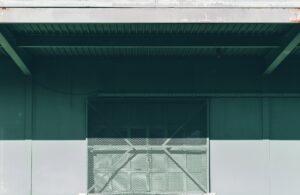Seething since 2000*
From the archives: “He carried oranges”
Aldo said, in his very own voice, meet me here at half to nine in the morning – here at the top of the stair, by the locked door, when the sunlight creeps through the street doorway below, at the bottom. I am here now, here in enough time to see my normal self rushing across the square, gripping a perfect orange in my hand, my satchel thrown roughly over my shoulder, my hair still wet, the water freshly drawn from the well.
That is not myself, merely an imaginary person. Aldo is also imaginary unless he turns up now. The wooden stairs creak beneath my feet, the passageway in semi-darkness.
The table in the house, scratched and scorched by the years, my mother seated by the window, smiling as I place the orange in my bag, along with my books, along with my secret books. She calls me to her, holds my head in her hands: everything will be fine now, this is our new home, this is where we will stay. We can smile now. Go. Peace to you, she says, touching my cheek. I return: Peace.
Then walk out the door, wishing I had said the better word.
Half to nine, ahead of time, I watch the village wake. I head for the square, where the old church, with its catechisms and seasons, has been abandoned. The Town Hall replaces it in the people’s consciousness – a clock has been installed there, the only one for miles around.
Only here does time really exist. Here, in this sunlit stairway, by the locked door, the cobblestones faintly visible through a door downstairs.
The day awaits me, stirring half-excitedly like dogs in the street. My aunt’s dogs, wrestling in the dust in front of her house. She sits reading beneath a tree as wizened as herself; reading to me, from the book. My mother need not know of my tuition, nor of the old words I am learning.
When my father returns from the war and I am able to greet him in the old fashion, imagine how much greater my mother’s happiness will be. Reunited with her lover and with the ties that bind her to me and to him and to my aunt.
There is nothing I want more than to make my mother happy. So I sit and I read; so we sit and speak to each other in what for her are half-remembered mutterings stolen from elsewhere, such as my father and my uncle also used.
Some time in the past, yes.
Learning to copy the strange symbols scrawled in the books she has stored away beneath the winter clothes in her trunk, by the stove in the kitchen, beside the pile of wood I have chopped for her.
My uncle’s cold, blunt axe.
Today, after I have finished here, I will go to her house. We will sit beneath the old tree and I will listen, we will talk, we will read, I will write in the dirt at her feet. I read with enthusiasm; my aunt tells me I am progressing well.
My mother does not talk to my aunt.
Her brother is dead. She is all alone. She is waiting to wake up.
I often sleep. Often she will let me doze until mid-morning. I wake to find her sitting at the window with a faraway expression on her face. But today I have not been dozing; the sun has not been crawling across the room towards me. The boy with the orange clasped firmly in his sweaty hand is not me today. It is not yet the time for me to be late.
I hear the bells strike the half hour. At the same time Aldo’s boots begin stomping up the stairs.
But it is not Aldo. It is an old man I do not recognise. He rests for a moment at the top of the stairs, unaware that I am standing by the door.
You must recognise him! He is the old man whose teeth are cracked and yellow. He sits every day by the woodpile, wearing an old grey suit that is too short in the legs. He wears a yellow flower in his lapel and at night he wanders through the village, prowling.
He is the type that mothers tell their children not to talk to.
Take the image of this man, by whom you are so repulsed, and explode it. Posit him in a narrative, along with yourself and as many of your friends as you wish, until it becomes unbearably complicated.
When he looks up, his face is flushed and unshaven. He sees me and is startled – then smiles and walks towards me.
So you’re the young man. More a statement than an expression of curiosity.
Mandarin seeds on the window, the rats dancing mainly in the drain. The new moon last night was slowly making itself apparent. The fonts were full of Antiqua.
Never trust the story-taker, tour-guide, lie-maker. There’s a dead man, look at that! And a monkey, strapped in Parliament.
They buy coconuts in the marketplace. Why? They change the language. Why? They build water fonts all over the place. Why?
In every town square (why?), in every courtyard (why?), in every.
Do not buy coconuts, do not prance in the marketplace. Your fonts are filled with rust and your blood will wither.
Father! I exclaimed, you are now real.
Mother, I thought, do not cry, I am progressing very well.


